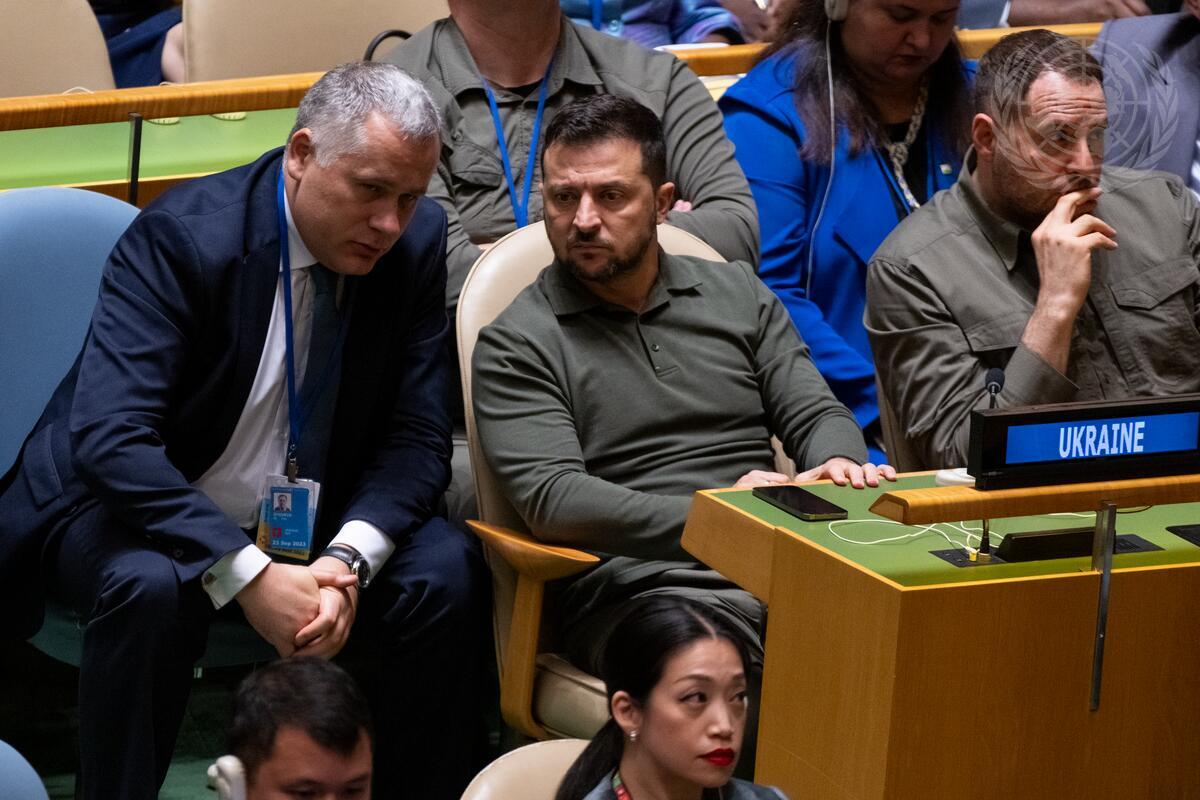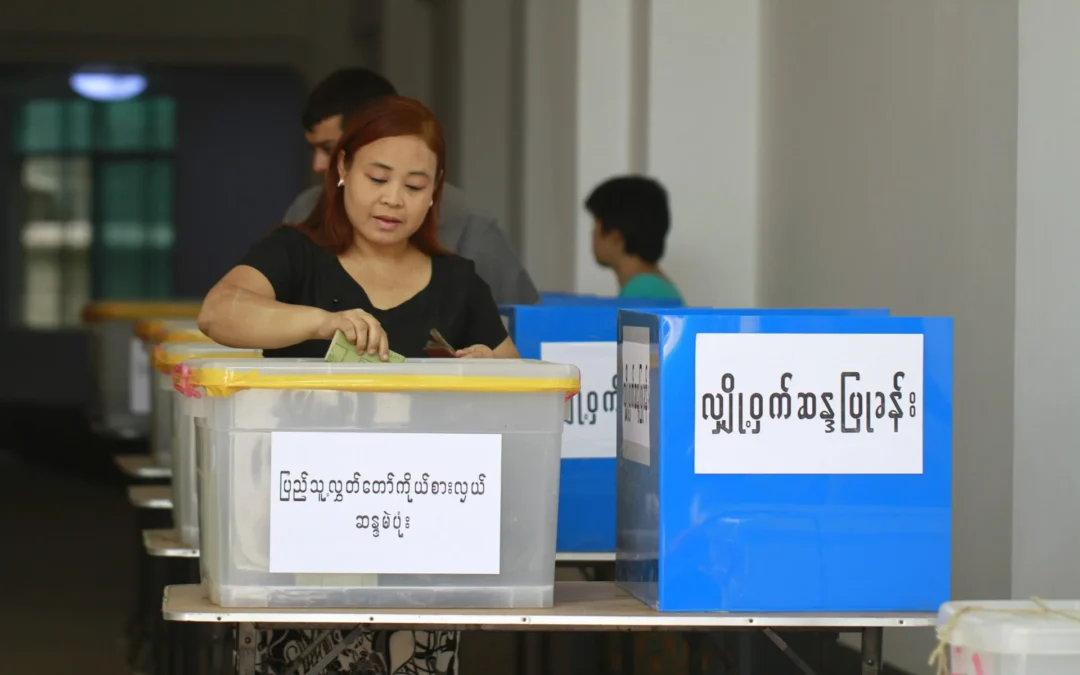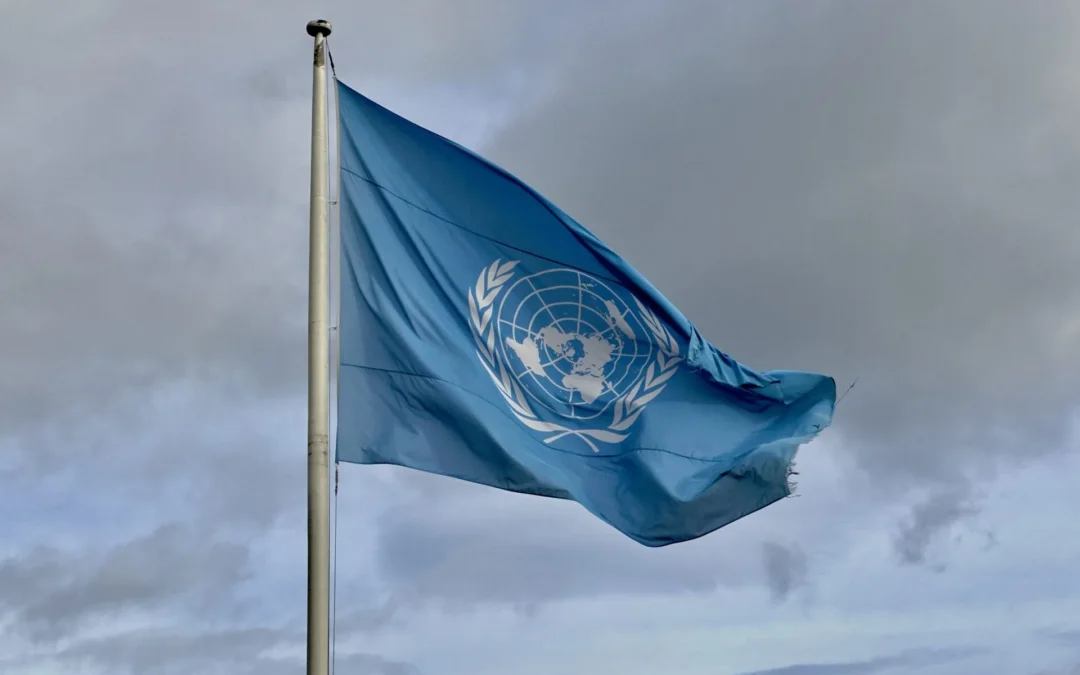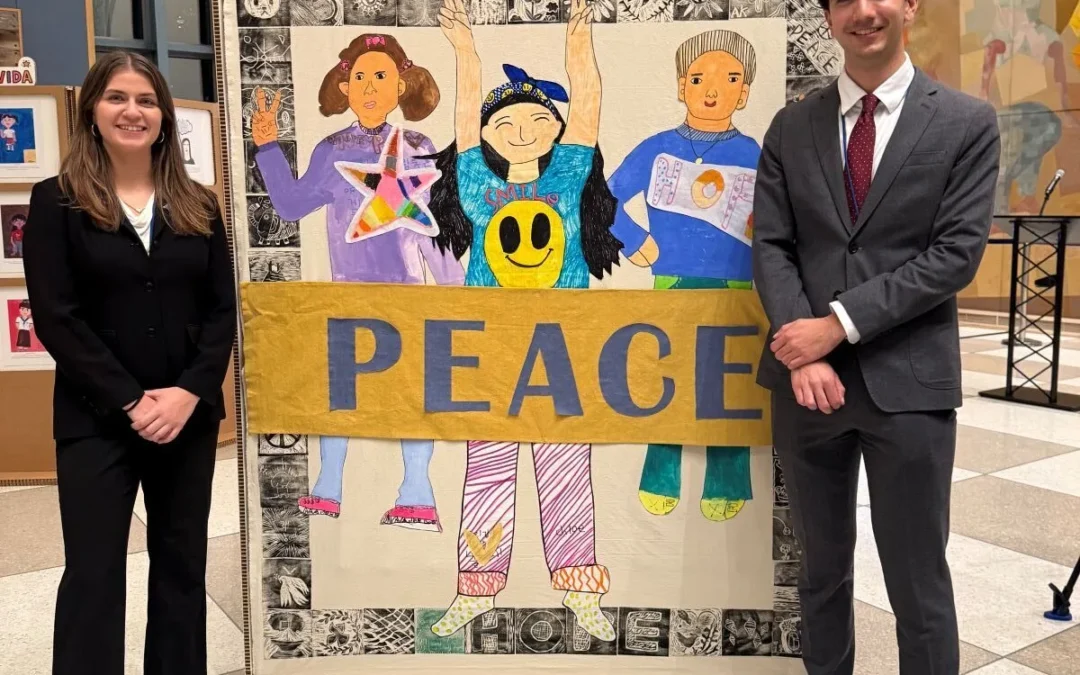The 78th session of the United Nations General Assembly (UNGA78) opened with an invitation to the UN Member States to share their perspectives on effective avenues towards Rebuilding trust and reigniting global solidarity: accelerating action on the 2030 Agenda and its Sustainable Development Goals towards peace, prosperity, progress and sustainability for all. Building on the discussions raised by the UN Secretary General’s New Agenda for Peace and the intergovernmental preparations for the Summit of the Future, this year’s theme encouraged Member States to reflect on their aspirations towards prevention through the interlinkages between sustainable development and global peace. By connecting discussions on peace and development, this year’s theme offers an opportunity for Member States to coordinate efforts towards strong and consolidated prevention action.
Distilling insights from UNGA78, we reflect on Member States’ prevention priorities and global multilateral action to support nationally-led prevention strategies.
The global community's action on sustainable development and sustaining peace must be reflective of the ongoing and emerging trends in violence and conflict.
The UN was created to save succeeding generations from the scourge of war, with a central role for conflict prevention. Within the UN system, the term prevention can be viewed broadly. In the 2017 Security Council ministerial-level open debate, the UN Secretary-General, António Guterres, defined prevention as “doing everything we can to help countries to avert the outbreak of crises that take a high toll on human lives and undermine the institutions and capacities needed to achieve peace and development.” But today, the international landscape continues to be afflicted by the outbreak of armed conflict across the globe, alongside new and evolving threats to peace and security such as climate change and social and economic inequalities. In order to prevent the outbreak of armed conflict, the international community must recognise these trends and reshape the global multilateral system to be responsive to these developments.
During UNGA78, Member States made little direct reference to prevention. However, it is clear that by outlining real and potential risks to sustainable development and peace, Member States examine tensions and root causes of armed conflict with the aim of preventing future armed conflict. In their statements, Member States placed a clear emphasis on the need to uphold the rights of women and girls, uplift the voices and perspectives of young people, respond to climate change and threats of future pandemics, legislate on artificial intelligence (AI) and other emerging technologies, and address nuclear threats. Some Member States also identified several concrete mechanisms to advance prevention, including through strengthening early warning systems and exploring the possibility of adapting national prevention strategies.
Just, equitable and inclusive multilateralism is required for sustainable development and peace.
One key approach to addressing ongoing violence and persistent conflicts is the creation of a more just, equitable and inclusive multilateral global order. This can be achieved through the reforms of the multilateral system and the global financial architecture in a way that is responsive to the development needs and ambitions of all Member States and in the context of contemporary challenges, such as new technologies, climate change, and nuclear threats. Member States, especially from the Global South, strongly and repeatedly emphasised that effective prevention can only be achieved through the decolonisation of global governance and the mitigation of tensions through dialogue based on the principle of equality among all nations.
Where are we now? Challenges and opportunities of global multilateralism
Despite the agreement among Member States on many risks and challenges to prevention, statements at the opening of UNGA78 did not give any concrete proposal about how to turn the rhetoric of global multilateralism into tangible actions. Three reasons account for why tangible solutions for prevention were not outlined by Member States. These largely stem from current challenges facing multilateralism.
First, Member States are focused on addressing issues within their own countries, rather than thinking about the global community. While there were many calls for pluriversality and recognising diverse views at the global level, there were no concrete proposals on how preventative multilateralism could work in practice. Many Member States seemed to call for a multilateral solution to prevention, but do not know how to practically achieve it. The lack of references to the New Agenda for Peace and the Summit of the Future may indicate that they are not at the forefront of Member States’ plans. Instead, the priorities of prevention appear to revolve around the ability to anticipate domestic risks coming from ongoing colonial aspirations, securitisation, inequality, AI and cyberthreats, and climate change.
Second, Member States are still (and probably more than ever) focused on achieving peace through increasing security capabilities. A worrisome trend was the strong emphasis on militarisation made by several Member States. Militarisation – through increased spending and focus on securitisation of people’s lives – imperils broader efforts to achieve sustainable peace and prevent conflict. For instance, prioritising military resources diverts funding from humanitarian assistance and other prevention initiatives.
Third, discussions did not reflect on the role of civil society in sustainable development and peace. In contrast to the global commitment to localisation and growing support for civil society's role in peacebuilding and conflict prevention, Member States barely referenced civil society, especially local partners, in their statements.
Based on this analysis, Member States must undertake the following steps to advance the prevention agenda in the next few years:
- Commit to concrete action: Concrete proposals from the New Agenda for Peace, the consultations for the Summit of the Future, and ongoing civil society discussions must translate into concrete actions on the international, regional and national levels. For this, the UN should create platforms for multi-stakeholder dialogue at all levels to bring together various perspectives that will develop concrete action plans on sustainable development and peace.
- Work with civil society: Member States’ commitment to prevention and achieving sustainable peace and development must include meaningful and continuous engagement with civil society at all levels. The Civil Society-UN Prevention Platform, co-facilitated by the Quaker UN Office (QUNO) and the Global Partnership for the Prevention of Armed Conflict (GPPAC), has demonstrated the value of collaborative efforts to enhance capacity, sharing information and best practice, as well as providing material support to bolster monitoring and early warning indicators.
- Articulate a prevention vision: Member States should encourage the UN Secretary-General to articulate a new, more inclusive and concrete global prevention vision, and define mechanisms to support this vision at all levels.
Photo credit: UN Photo/Manuel Elías
Photo caption: Volodymyr Zelenskyy (centre), President of Ukraine, attends the general debate of the General Assembly’s seventy-eighth session.







